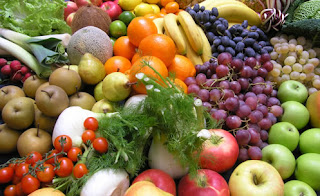Last one… Questions to ask a Produce Farmer
Sustainable Table is an extraordinary website packed with important information! You can find information on issues like animal welfare, additives, pollution, CSA’s, farmer’s markets, environment, factory farms…the list goes on. I encourage you to go to their website and take some time to read through the articles. I contacted Sustainable Table and asked for permission to use their information on my blog site because I believe it is extremely relevant to the purpose of my blog. I took each list word for word from their website so all Kudo’s go to SustainableTable.org.
The post prior to this one was a question list to ask a poultry farmer.
As you continue reading, you will notice these questions were generated specifically for a produce farmer. The list gives you a series of questions to ask and what type of answers you should be getting in response.
What pest control methods do you use on your farm?
Organic and biodynamic farmers have shown that it is not necessary to use chemical herbicides and pesticides in order to produce healthy, nutritious produce. There are many safe and effective pest control methods that farmers can use, rather than harmful chemicals. If possible, you should avoid buying produce from farmers who apply harmful chemicals to their crops.
What type of fertilizers do you use?
Chemical fertilizers are intended to increase growth and yield in vegetable crops but their use is entirely unnecessary, and harmful to the consumer. There are many effective and safe ways to fertilize soil, including with compost or with manure from sustainable pasture-based farms.
Do you grow any heirloom varieties?
While it’s not necessarily an indicator of environmental sustainability, whether or not a farmer grows heirloom varieties is still an important question. Farmers who choose to grow heirloom fruits and vegetables help to preserve genetic diversity by ensuring that these unique plant varieties do not become extinct. Heirloom vegetables have been passed down for generations, and are treasured for their unique and delicious flavors, textures and stories. If a farmer doesn’t grow any heirloom vegetables, ask them to consider doing so next season. Most farmers are just trying to meet the demands and desires of their customers.
How many different types of produce do you grow?
Crop diversity is a good indicator of sustainability when it comes to produce farming. Many sustainable farmers rotate crops between different fields, allowing those not under production to lie fallow and recover under a cover crop. You want your farmer to tell you that they grow a diversity of crops each season. However, some sustainable farmers do focus on a particular crop. If so, there are other issues to consider, such as crop rotation.
Is your farm certified organic, biodynamic or naturally grown?
If a farm’s products are certified with a third party label, such as Demeter (biodynamic), USDA Organic, or Certified Naturally Grown, some of the work is done for you. You may want to research what the certifying organizations are looking for, and what each type of certification actually means, but many of the questions listed above may be answered for you. It’s important to remember, however, that some farmers choose not to certify for financial or political reasons. This does not mean that you shouldn’t support them. It doesn’t mean that they are not using organic or sustainable methods. It does mean that the responsibility lies with you to find out how they farm. Most farmers who choose not to have their produce certified will be willing to explain why, and to answer your questions.
———————————————————————————————————————————
Isn’t it enlightening? Finally some easy general questions and answers to understand without the confusion of everything else in between. Even if you aren’t buying direct from a farmer or at the farmers market use these questions to ask yourself when you make your next purchase at the grocery store.
Last Sunday I bought some bok choy from a farmer that wasn’t certified organic. He said he wasn’t certified organic because of the long process it takes and he just doesn’t have the time. He also said he uses sustainable methods but may sometimes use a non chemical fertilizer. It was definitely comforting to be able to talk to the owner of the farm about why he chose to not be certified organic. You can’t really get that at any grocery store!
I hope you enjoyed the series of question lists! I also hope it helped you become a little more educated on what things you should be looking for in your food. I’m also including a link to a set of Questions to ask a Store Manager.
Until next time,
Loriel - Healthy Roots, Happy Soul
Resources- www.sustainabletable.org
photo credit

